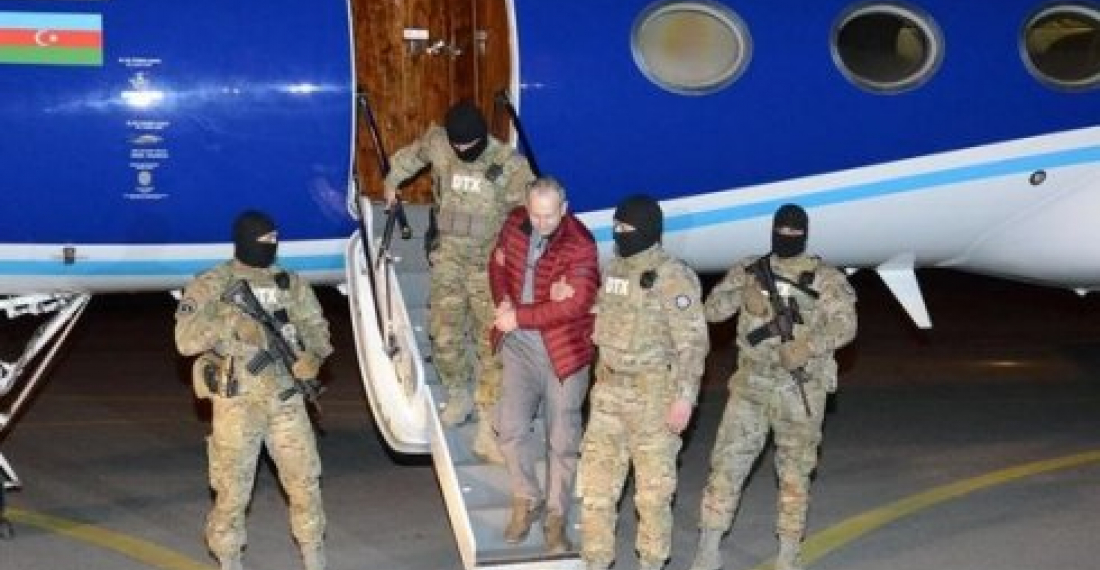The government of Belarus last night extradited Alexander Lapshin to Azerbaijan, in a landmark case that has considerable legal and diplomatic ramifications.
Earlier Azerbaijan had requested the extradition of Lapshin, who holds dual Russian and Israeli citizenship, saying that he had violated Azerbaijan's state border by visiting Nagorno-Karabakh without its permission, and for making statements against the territorial integrity of Azerbaijan. The Belarus authorities finally agreed the extradition after legal battles that have lasted for several weeks, and despite representations from Russia and Israel who were against the extradition.
For a number of years Azerbaijan has taken exception to foreigners visiting Nagorno-Karabakh, as well as adjacent territories currently under Armenian control, without first securing its permission. The Azerbaijani Foreign Ministry regularly publishes a list of such persons, who are than automatically declared person non grata in Azerbaijan. This is however the first time Azerbaijan has tried to launch criminal proceedings against anyone travelling to Nagorno-Karabakh. Lapshin was a vocal critic of Azerbaijan and a supporter of the independence of Nagorno-Karabakh, so he was probably chosen because in his case there is no difficulty in proving that he was consciously defying Azerbaijani law. The case however also has implications for others who visit Karabakh either without being fully aware of the status of the territory as a non-recognised territory still recognised as part of Azerbaijan, or others who visit as part of non partisan work - be it humanitarian or as part of peace making efforts.
Having succeeded in this first test case Azerbaijan may decide to push the matter further, seeking the extradition of others.
This is for the moment unlikely. The timing of Lapshin's case was crucial for Azerbaijan's successful extradition bid. Relations between Russia and Belarus are at the moment at a very low point, and Belarus President Lukashenka may have used Lapshin's case to show Moscow, which has shown displeasure and discomfort with the case, that he will not be dictated to.
Russia and Israel both have very good relations with Baku. The two between them supply most of Azerbaijan's weapons. But their relations with Baku are also complicated, and Lapshin's extradition will not make them any simpler.
For Baku however, in the short term the extradition is a victory to its determined position to ascertain its territorial integrity. It will make others who want to travel to Nagorno-Karabakh more careful. The case adds a further wedge in relations between Belarus and Armenia, two countries that are technically allies as members of the CSTO, and partners as members of the Eurasian Economic Union.
But if Azerbaijan decides to initiate new cases against others, the situation can potentially embroil it in legal and diplomatic quarrels with an ever-expanding list of countries, making such a course counterproductive. For the moment however it is likely to put all its efforts in showcasing Lapshin's predicament, and managing the fallout with Moscow and Tel Aviv.
Source: commonspace.eu
Photo: Alexander Lapshin arriving in Baku after he was extradited from Belarus on 8 February 2017 (picture courtesy of news.az)






